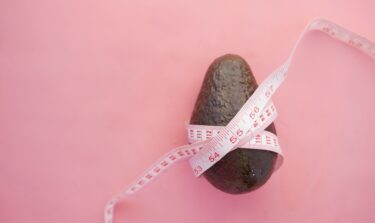
What to do about loose skin after weight loss
After weight loss, some people may experience looser skin – this is completely natural.
While loose skin isn’t harmful, it can sometimes feel uncomfortable or affect how you feel in your body. If you’re exploring ways to support your skin after weight loss, you’re in the right place – we’ll walk through both natural approaches and medical options that can help.
At Oviva, we understand how personal a weight loss journey is. With our NHS-funded weight loss programme, you can feel confident navigating long-term weight loss.
Key Takeaways
- Loose skin after weight loss is common and can sometimes lead to physical discomfort or changes in how you feel in your body.
- Healthy lifestyle choices, like exercise, nutrition and skincare, can all support your skin naturally after losing weight.
- In some cases, surgery to remove excess skin may be an option, but surgery can take a toll on the body so it’s worth exploring non-surgical options first.
What causes loose skin after weight loss?
As your body changes, so does your skin. When you lose weight – especially a larger amount – your skin may not adjust right away and loose skin is common. There are a few reasons why:
1. Rapid weight loss
If you’ve lost a lot of weight quickly, your skin has had less time to gradually adapt to changes in body size – this can cause excess skin.
As a guideline, the NHS recommends losing 1 to 2 lbs per week.
2. The amount of weight you lose
When you lose a lot of weight, especially from your midsection, there’s less fat beneath the skin. This means your skin has less volume to cover, which can result in the skin appearing looser, especially in areas where it was previously more stretched.
3. Collagen and elastin damage
Experiencing overweight for an extended time can damage the skin’s collagen and elastin fibre – the proteins that help skin stay firm and flexible.
So, when you lose weight, your skin may not have the same ability to adjust, because the proteins that help skin stay firm aren’t working as well.

4. Genetic factors
Everyone’s skin responds differently to weight changes – and part of that comes down to genetics. Some people naturally produce more collagen or have skin that’s more elastic, which can affect how their skin adjusts.
Because of this, some people may be more likely than others to notice looser skin after weight loss – and that’s entirely individual.
5. Lifestyle factors
Certain lifestyle habits can influence how your skin responds to weight loss. For example, smoking and alcohol may reduce skin elasticity over time.
Spending a lot of time in the sun without protection can also affect your skin’s structure – UV exposure can break down collagen, which may lead to looser-looking skin.
How much weight loss can cause loose skin?
If you lose a significant amount of weight, such as 50 lbs (around 3.5 st) or more, the chances of having excess skin may increase. This is even more likely if your weight loss is very rapid.
That said, everyone’s body is different. Factors like age, genetics, and how long you’ve lived at a higher weight all influence how your skin responds. And there are things you can do to manage loose skin naturally.
Will loose skin go away on its own?
It depends. Skin may gradually adjust over time after weight loss, especially if you’re younger.
For some people, particularly after losing a larger amount of weight or living at a higher weight for a longer time, some loose skin may remain. This is a natural response and varies from person to person.

The support from the app and my coaching team was amazing! It was like a switch went off – I realised I wasn’t on a diet anymore. This is just how I eat and live now.

How to prevent loose skin when losing weight
There are some steps you can take to support your skin as your body changes, which may help reduce the likelihood or appearance of excess skin after weight loss:
1. Lose weight gradually
Slower, steady weight loss gives your skin more time to adjust. For most people, the NHS recommends aiming to lose 1–2 lbs per week.
You may also find it easier to maintain your weight if the changes that got you there were gradual rather than extreme – based on habits you can stick to long term.
2. Eat a balanced diet
What you eat can support your skin during and after weight loss. Lean, protein-rich foods like chicken, eggs, beans and tofu help your body produce collagen and elastin – the proteins that keep skin flexible.
Vitamin C and vitamin E can support collagen production, skin healing and hydration. Omega-3 fats, found in foods like salmon, mackerel, flaxseeds and walnuts, may also help your skin stay healthy and hydrated.
Eating a balanced, varied diet may also help you lose weight steadily, which gives your skin more time to adjust.
3. Stay hydrated
Drinking enough fluid helps support your skin’s elasticity and overall health.
The NHS recommends around 6 to 8 glasses of water or sugar-free drinks each day – though you may need more in hot weather or if you’re active.
4. Practice good skincare
Regularly moisturising and self-massage can improve circulation which supports healthy blood flow to the skin – this can encourage skin cell renewal and maintain firmness over time.
You can also help maintain your skin’s hydration by avoiding too much sun exposure.
5. Quit smoking and reduce alcohol
Both smoking and drinking alcohol can impact your skin health.
Smoking has a direct impact on collagen production – with less collagen, your skin may struggle to adjust to weight loss changes.
Alcohol increases how much you urinate and can lead to dehydration. This can affect skin moisture and elasticity over time. It also interferes with collagen production – the protein that helps keep skin firm.
How to naturally tighten loose skin after weight loss
If you’ve already lost weight and are experiencing loose skin, there are ways to manage it naturally, including:
Exercise
Strength training may help improve the appearance of loose skin by building muscle, improving skin firmness, and boosting circulation.
Skincare
Using moisturisers or firming creams won’t remove excess skin, but they can help improve the texture and appearance of your skin. Regular skincare may also support hydration and help you feel more comfortable in your body.
Collagen supplements
Some people choose to take collagen supplements to support skin health. However, there isn’t enough evidence yet to confirm how effective they are.

Are there treatments that tighten loose skin without surgery?
Yes. If natural methods haven’t had the effect you were hoping for, you might want to explore some non-surgical treatment options for looser skin. These can include:
- Ultrasound/Ultherapy – This treatment uses ultrasound to stimulate collagen production and help tighten the skin. It’s most commonly used on the face and neck. It’s safe to use on the face and may be an option for Ozempic face.
- Radiofrequency/infrared – These are non-invasive procedures that use heat or light to tighten skin, improve tone, and stimulate collagen and elastin production.
- Laser resurfacing – This uses laser energy to tighten the skin. It’s often used on targeted areas like the face. While it’s not surgical, it may involve more recovery time than other non-invasive treatments.
- Vacuum-assisted massage – This uses massage and suction to improve blood flow and potentially boost toning.
It’s helpful to manage expectations – non-surgical treatments may be less effective for larger areas of loose skin, such as around the stomach or upper arms.
What about surgery?
In some cases, you may wish to explore surgery – especially if it’s causing physical discomfort or affecting your daily life, mobility or mental wellbeing.
Surgery is invasive and carries risks, so it’s usually considered after other approaches have been tried.
Here are some of the common procedures:
- Mini abdominoplasty – removes a small amount of loose skin from the lower abdomen
- Full abdominoplasty – removes more skin and may tighten the area around the belly button
- Brachioplasty – surgery to remove excess skin from the upper arms
- Rhytidectomy (face lift) – removes loose skin around the face or neck
- Mastopexy (breast lift) – removes excess skin and reshapes the breasts
- Thighplasty – removes loose skin from the inner or outer thighs
If you’re thinking about surgery, it’s important to speak with a qualified professional who can guide you through the options.
Will the NHS cover skin removal surgery?
The NHS may cover skin removal surgery if there’s a medical need, for example, if skin folds are causing infections or excess skin is affecting mobility.
You’re more likely to be eligible for NHS support if you:
- Have lost more than 3 stone (20 kg) and have maintained that weight loss
- Can demonstrate physical or emotional health issues caused by excess skin
You can speak to your GP to explore your options further.
Is excess skin a health risk?
Usually no, but it can sometimes lead to issues like:
- Skin irritation – moisture can collect in skin folds, leading to rashes and fungal infections.
- Discomfort or restricted movement – some people find that excess skin gets in the way of their daily activities and causes physical discomfort.
- Emotional impact – the way your body looks after weight loss can affect how you feel.
If you’re experiencing any of these, speak to your GP – support is available.

Take the first step with Oviva
Oviva’s NHS-funded programme is designed to help you lose weight and keep it off.
With Oviva, you’ll benefit from:
- A personalised weight loss plan from a team of dietitians and doctors
- 1:1 support from a health coach
- Weight loss medication (if appropriate)
- Our easy-to-use app to help you track your progress and stay motivated
As your body changes, we’ll support you through every stage — including how to manage common experiences like loose skin, without judgment.
You may be eligible if you have a BMI over 35 and a weight-related health condition.








